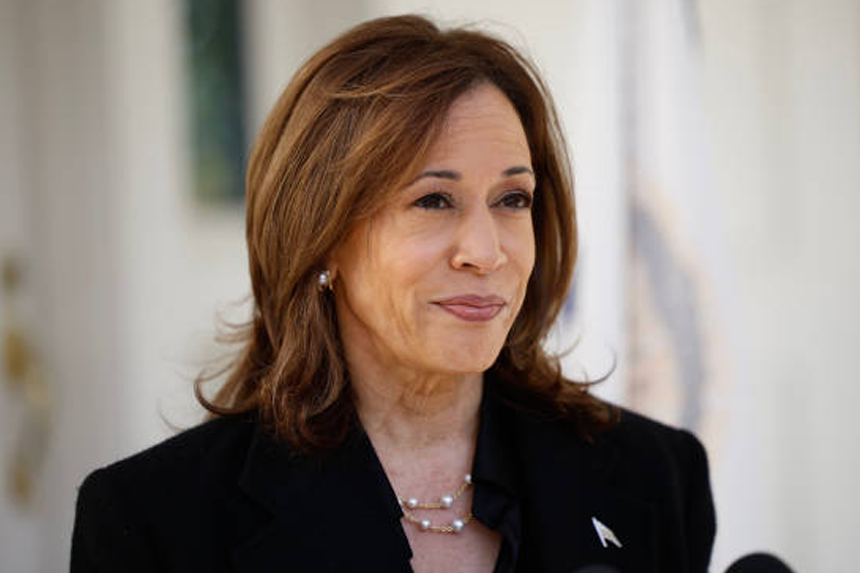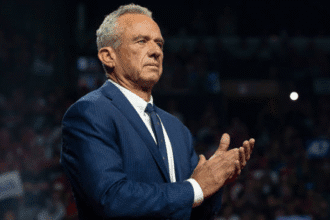Kamala Harris was declared the Democratic presidential nominee two months ago amid great celebration at a national conference in Chicago. She was seen as the election saviour for thousands of party supporters, substituting an 81-year-old incumbent unable to defeat Donald Trump and secure another term.
Senior party strategists, meanwhile, voiced worries about the Democrats’ too-optimistic view of her road to success. Now, those concerns seem to have been justified as election day looms and tensions rise.
What Momentum Does Harris Have and What Challenges Lie Ahead?
Harris had a rush of momentum and a vast poll bump above President Joe Biden, who has been lagging behind Trump. She seemed, however, mainly returning people who usually vote Democratic but had doubts about Biden’s age and qualifications.
Harris must draw votes outside the Democratic base to triumph while preserving the precarious alliance that made Biden win in 2020. Recent surveys show the contest has narrowed, currently almost exactly a draw. For Democrats, this is alarming, as Trump has acquired momentum in pivotal “blue wall” states like Michigan, Wisconsin, and Pennsylvania that offer Harris the best route to win. He has also made incursions among Latino and Black voters.
The poll results fall inside the margin of error. Hence, even if the neck-and-neck competition in essential swing states is evident, they could be erroneous.
How Has Harris's Campaign Strategy Shifted?
Harris’s rhetoric against Trump has darkened in recent days. At the convention, she discounted him as a “weird” and “unserious man.” Now, she labels him a “fascist,” “increasingly unhinged and unstable.” Her initial message of delivering “joy” has evolved into one of caution about the perilous results of a second Trump administration.
According to polling, Harris is probably going to win the popular vote, but that alone will not be sufficient. She has to capture important battlefield states to guarantee an Electoral College triumph
What Are Voter Concerns and Challenges in Michigan?
As I visited various states, it became clear that many voters still have misgivings about Harris, a woman they believe they know little about.
Harris has a particular difficulty in Michigan, where the concentration of Arab-American voters is highest in the United States. Biden barely won over 150,000 votes to win the state in 2020, but his government’s inaction on Israel’s activities in Gaza and Lebanon has tarnished the party’s reputation among the 300,000 Arab-Americans living there. As Biden’s vice president, Harris is equally liable.
A group of lifetime Democrats gathering in the Middle Eastern-style café offering Turkish coffee and pomegranate juice in the Haraz coffee shop in Dearborn would usually be out on campaign. Some expressed intense emotions about their intended voting behaviour. Declaring herself as further left than most Democrats, Samraa Luqman said, “I feel there has to be responsibility for all the lives lost. I will not be frightened into voting for the Democrats; I do not forgive them for this.
Chadi Abdulrazek said: “I could never have imagined voting for Trump a year ago, but now Samraa may persuade me. Should I wish to penalise the Democrats—more significantly, this government—then I would have to give some thought. Every time I mention that, I must go and puke up. But equally, I consider my family and my people in Palestine and Lebanon.
Although Harris has expressed her wrath about the suffering in Gaza and Lebanon, these voters are asking for a firm position on Israel. They want her to promise not to provide Israel with weaponry should those weapons be used in strikes resulting in civilian deaths.
What Role Do Working-Class and Union Voters Play?
The union vote and working-class vote in Michigan could also be crucial. Union representative Jean Ducheman of United Auto Workers in Lansing, Michigan, shared his changing view on Harris. He had strong misgivings about Harris while discussing Biden’s age in July. He now thinks she is the greatest option, winning over some of his unsure colleagues.
Though some unions have decided not to support Harris, Ducheman said, “She came and spoke to us, and that’s appreciated.”
Why Is Pennsylvania the Key Swing State?
Pennsylvania ranks first among the swing states since it has the most votes in the Electoral College. Both sides have spent hundreds of millions on advertising to appeal to hesitant voters while polls are at a stalemate.
Visits to the state made it evident that voters are mostly worried about the economy, where Trump seems to be rather strong. Many Democrats felt better four years ago when record-high inflation affected their budgets, regardless of how much they stressed positive employment numbers or economic growth.
I met Gene Wool, one of those elusive, indecisive voters, at a national hunting and fishing festival held in Bald Eagle National Park. Wool was reluctant to support Trump because of the “scandals surrounding him.” Wool, though, is sure that food and gasoline prices were lower when Trump was in office.
“Most of my friends are probably going to vote for Trump,” he stated, noting that he also thinks Pennsylvania will swing in that direction.
How Is Harris Targeting Suburban Women and Addressing Gender Issues?
Harris is concentrating her efforts on Pennsylvanian suburban women, especially those who usually vote Republican but find Trump’s words and actions strange.
Recent events, including Harris’s meeting with moderate Republicans like former Congresswoman Liz Cheney, seek to convince this group that it is better to vote Democratic, even if they disagree with Harris’s beliefs, merely to stop Trump from recovering the White House.
In a battle marked by the nation’s most significant gender difference, Harris generally leads strongly among female voters. She rarely mentioned that if elected, she would be the first female president; she has mainly abstained from stressing the historic character of her candidacy. She still stresses, nevertheless, her support of women’s reproductive rights.
Conversely, Trump claims to have appointed Supreme Court justices who revoked the country’s right to an abortion in place for almost 50 years. He knows that the strong abortion prohibitions implemented in certain states following a ruling are quite unpopular; thus, he must negotiate carefully.
How Are Voters Mobilised Through Abortion Rights Advocacy?
Recently, for a “postcard party,” volunteers assembled in Phoenix, Arizona, at a hip downtown bar. Many of the Arizona voters to whom they intended to deliver personal messages about their dedication to abortion rights are not usually politically active.
One of the two central battleground states in America’s West, Arizona, has a ballot question asking whether to formally reverse the present law prohibiting ending a pregnancy after 15 weeks by enshrining abortion rights in the state constitution.
While there, Democrats hope that women in the ten states with such abortion ballot measures will be driven to the polls by this issue and will vote for Harris.
Nicole Nye said she had never participated in a political campaign before and had already gathered a voter—her 62-year-old mother, who had never cast a ballot.
“I told her I was apprehensive about my rights. She was lucky enough to grow up in a period when those rights were assured for her. It’s troubling because that’s up in the air for me, she said.
According to Arizona polls, voters will probably favour the measure by a significant margin, but that might not transfer into votes for Harris. Up to one in five voters indicate they intend to vote to ensure abortion rights in Arizona, but concurrently, they want to cast their presidential ballot for Trump.
What Does the Future Hold for Harris and the Presidential Race?
Neither Harris nor Trump is aware of the candidate who will become the U.S.USA’s next president, and neither are any of the political commentators or pollers.
However, Harris seems to have struggled to keep the enthusiasm and hope she first produced when she started running for president. Hoping to break through what Hillary Clinton, the last woman to run for U.S. president, referred to as “the highest, hardest glass ceiling,” she now has the difficult chore of campaigning for every vote.








